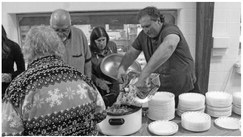Combatting more hurdles to reporting local news
By The News/Media Alliance
The International Trade Commission (ITC) has been urged by the News/Media Alliance, to reject anti-dumping (AD) and countervailing duties (CVD) on imports of aluminum lithographic printing plates, from Japan and China. These duties were preliminarily imposed earlier this year, at an excessive rate of 200 percent (China) and 87 percent (Japan) to these aluminum printing plates, which are used in the United States, to print newspapers, magazines, books and other printed materials.
A hearing will be held Sept. 12, to decide whether to continue to allow these duties, which would have a devastating impact on the news industry.
Following imposition of the tariffs, news publishers immediately began feeling the impact. Many newsrooms in the U.S., rely on printing technology that requires violet plates, which are not produced in the U.S., or thermal plates, which are produced in the U.S., Europe, Japan and China.
Prohibitive duties on thermal plate imports from Japan and China, would place newsrooms’ supply chain at risk, because the duties would be passed on from suppliers, directly hitting a publisher’s bottom line. Equally concerning, is the impact the import duties would have on limiting access to equipment maintenance, availability of parts and healthy price negotiation in a fragile industry.
A recent report from the Medill School of Journalism at Northwestern University, found that one-third of the newspapers that existed in the U.S., in 2005, would be gone by 2024. Newspapers are closing at a rate of more than two, per week. According to the same report, residents in more than half of U.S. counties have no, or very limited, access to reliable local news.
“Local news is the lifeblood of our communities and preserving quality local journalism supports a healthy democracy,” said News/Media Alliance president and CEO Danielle Coffey. “When newspapers close, there is a community-wide negative impact – civic engagement decreases, corruption increases and combatting misinformation becomes more difficult, which is particularly critical in an election year.”

